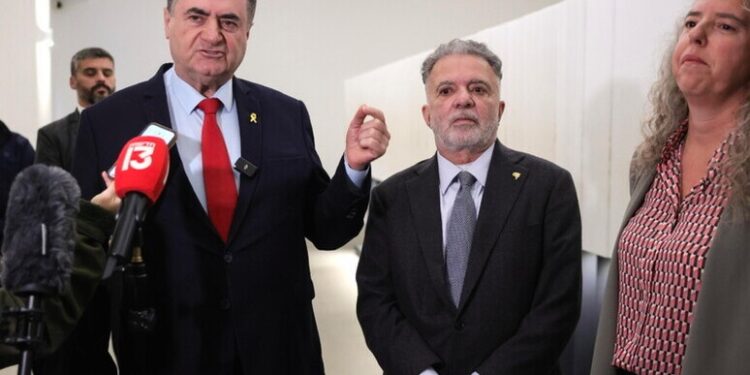In a significant move showcasing Brazil’s stance on the recent Israeli military intervention in Gaza, President Luiz Inacio Lula da Silva has taken decisive action by definitively removing Ambassador Frederico Meyer from his post in Israel. The diplomatic representation in Israel will now be led by the chargé d’affaires, Fábio Farias, signaling a period of tension and change in Brazilian-Israeli relations.
Ambassador Meyer, who had been called back to Brasilia for consultations amidst the escalating conflict in Gaza and had subsequently returned to Tel Aviv, will now assume the position of Brazil’s special representative to the United Nations Conference on Disarmament in Geneva. This shift in Meyer’s role underscores Brazil’s continued commitment to addressing global issues related to disarmament on an international platform.
The decision to maintain a vacant ambassadorial position in Israel while entrusting diplomatic responsibilities to the chargé d’affaires underscores Brazil’s stand against recent Israeli actions. The Brazilian government has openly criticized the Israeli attack on a Palestinian refugee camp in the Gaza Strip, reflecting their strong condemnation of the violence and turmoil in the region.
Tensions between Brazil and Israel have been steadily rising since February, following a contentious incident where Israeli authorities declared President Lula as “persona non grata” in response to his remarks likening Israel’s actions to the atrocities of the Holocaust perpetrated by Nazi Germany. This statement led to Foreign Minister Mauro Vieira recalling Ambassador Meyer to Brazil, setting off a chain of events that have strained bilateral relations.
As the diplomatic landscape shifts and negotiations unfold, Brazil’s firm stance on promoting peace, justice, and international dialogue remains at the forefront of its foreign policy. The country’s decision to reassign Ambassador Meyer and elevate its representation at disarmament conferences underscores the government’s commitment to addressing global security challenges through diplomatic channels.
In the midst of complex geopolitical tensions and escalating conflicts, Brazil’s actions serve as a poignant reminder of the critical role diplomacy plays in shaping international relations and advocating for peace and stability in regions facing crisis. The legacy of these decisions and their impact on Brazilian-Israeli relations will continue to reverberate as both countries navigate the intricacies of the global diplomatic arena.














































